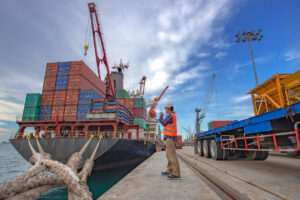Global economic growth is forecast to edge up to 2.5% in 2020 as investment and trade gradually recover from last year’s significant weakness but downward risks persist, the World Bank says in its January 2020 Global Economic Prospects.
Growth in the East Asia and Pacific region is projected to ease to 5.7% in 2020, reflecting a further moderate slowdown in China to 5.9% this year amid continued domestic and external headwinds, including the lingering impact of trade tensions.
Regional growth excluding China is projected to slightly recover to 4.9%, as domestic demand benefits from generally supportive financial conditions amid low inflation and robust capital flows in some countries (Cambodia, the Philippines, Thailand, and Vietnam), and as large public infrastructure projects come onstream (the Philippines and Thailand). Regional growth will also benefit from the reduced global trade policy uncertainty and a moderate, even if still subdued, recovery of global trade.
Growth among advanced economies as a group is anticipated to slip to 1.4% in 2020 in part due to continued softness in manufacturing. U.S. growth is forecast to slow to 1.8% this year, reflecting the negative impact of earlier tariff increases and elevated uncertainty. Euro Area growth is projected to slip to a downwardly revised 1% in 2020 amid weak industrial activity.
Growth in emerging market and developing economies is expected to accelerate this year to 4.1%. This rebound is not broad-based; instead, it assumes improved performance of a small group of large economies, some of which are emerging from a period of substantial weakness. About a third of emerging market and developing economies are projected to decelerate this year due to weaker-than-expected exports and investment.
“With growth in emerging and developing economies likely to remain slow, policymakers should seize the opportunity to undertake structural reforms that boost broad-based growth, which is essential to poverty reduction,” said World Bank Group Vice President for Equitable Growth, Finance and Institutions, Ceyla Pazarbasioglu. “Steps to improve the business climate, the rule of law, debt management, and productivity can help achieve sustained growth.”
Downside risks to the global outlook predominate, and their materialization could slow growth substantially. These risks include a re-escalation of trade tensions and trade policy uncertainty, a sharper-than expected downturn in major economies, and financial turmoil in emerging market and developing economies.
Even if the recovery in emerging and developing economy growth takes place as expected, per capita growth would remain well below long-term averages and well below levels necessary to achieve poverty alleviation goals.
“Low global interest rates provide only a precarious protection against financial crises,” said World Bank Prospects Group Director Ayhan Kose. “The history of past waves of debt accumulation shows that these waves tend to have unhappy endings. In a fragile global environment, policy improvements are critical to minimize the risks associated with the current debt wave.”










